The National Commission for Civic Education (NCCE) in the Adansi Asokwa District has organized a stakeholder engagement focused on adolescent health, gender equality, and the prevention of gender-based violence (GBV).
The programme, held with support from the United Nations Population Fund (UNFPA), was themed: “Empowering Community and Youth for Adolescent Health, Gender Equality and Preventing Gender-Based Violence through Civic Education.”
Addressing participants, Mrs. Patricia Nyantekyi, a midwife with the Ghana Health Service, emphasized the importance of adolescent health, describing adolescence (ages 10-19) as a critical stage of physical, emotional, and social development. She highlighted issues such as nutrition, reproductive health, mental health, and substance abuse as key factors influencing young people’s futures.
Mrs. Nyantekyi explained that family planning for adolescents is not about encouraging sexual activity but about equipping them with the knowledge and tools to make informed, responsible decisions. “Education is the key to a better future. Adolescents must abstain from sexual activity and avoid illicit drugs to secure brighter prospects,” she advised.
She further noted that access to contraception helps prevent unintended pregnancies, enables young people to complete their education, and reduces the spread of sexually transmitted infections (STIs), including HIV. According to her, investing in adolescent health contributes to healthier generations and drives long-term economic and social benefits.
Detective Sergeant Eugenia Nkansah of the Domestic Violence and Victim Support Unit (DOVVSU) at the Fomena District Police Command also addressed the session, explaining that gender-based violence often stems from inequality and harmful social norms. She called for intensified education through community information centers, churches, and mosques, urging parents to take responsibility for their children’s well-being.
She emphasized: “Let’s all come together to educate our communities on preventing gender violence and promoting gender equality.”
Mrs. Jacqueline Mahu, District Director of the NCCE, expressed appreciation to participants and stressed the importance of shared responsibility in tackling gender inequality. She noted that achieving a world free from GBV requires dismantling deep-rooted structures of inequality and fostering respect, equal rights, and dignity for all.
“Gender equality and the prevention of GBV are not just women’s issues, they are human issues that demand collective commitment,” she stated.
The engagement formed part of the NCCE’s ongoing collaboration with UNFPA to promote adolescent health, gender equality, and the fight against gender-based violence across Ghana.
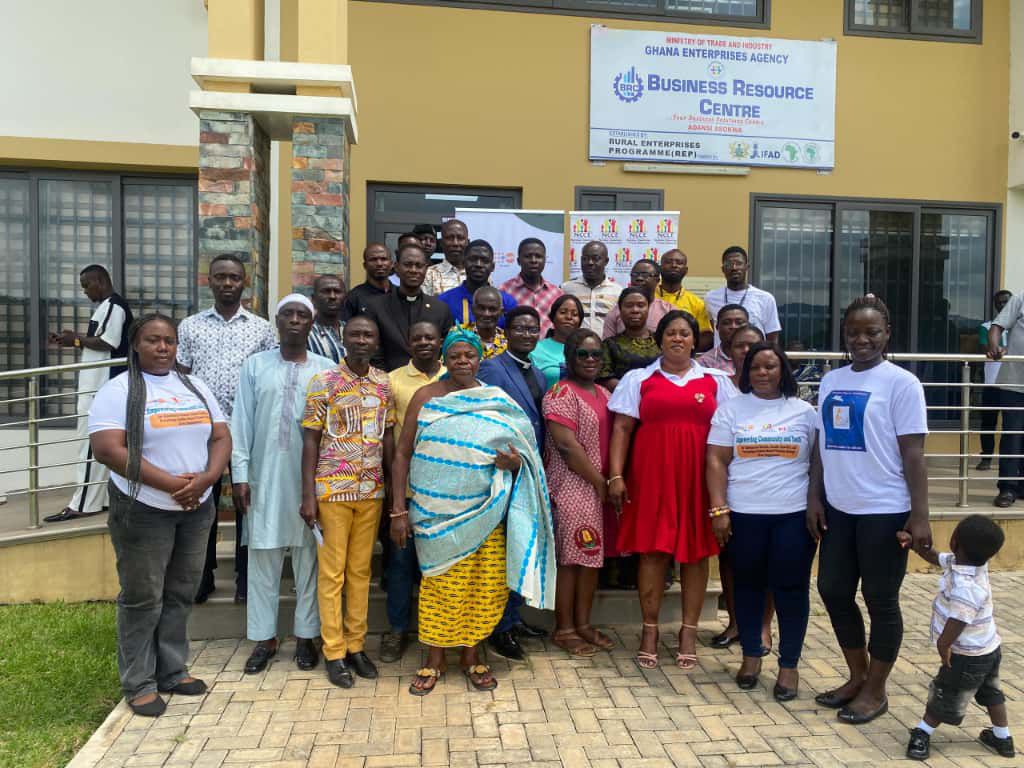
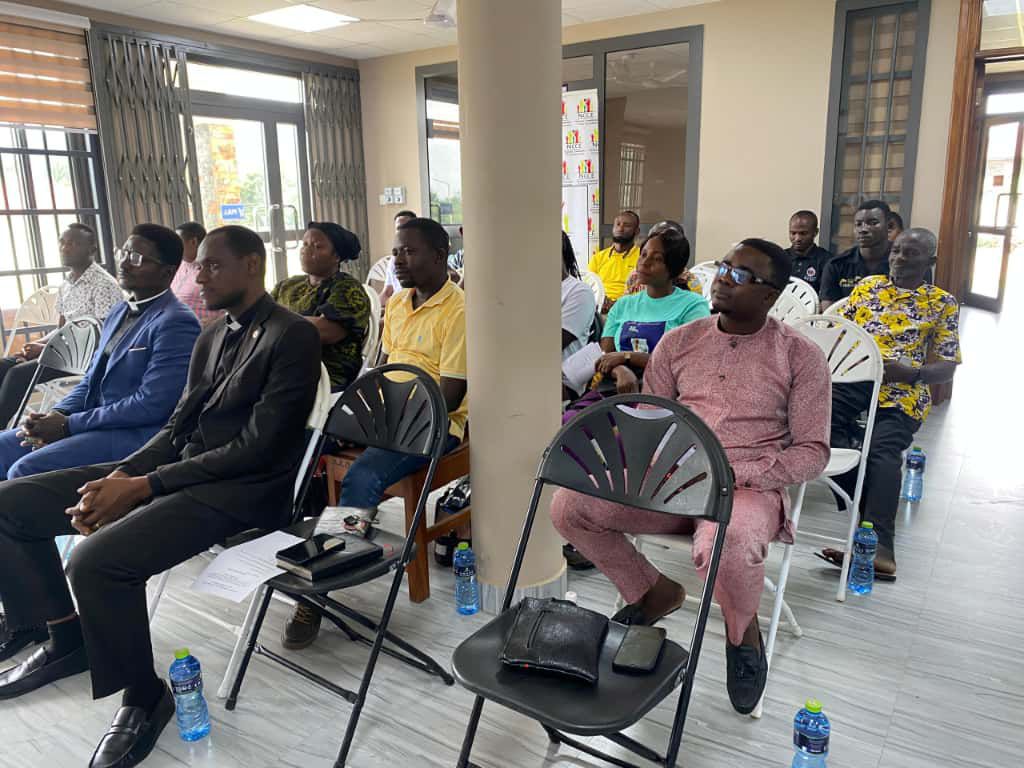
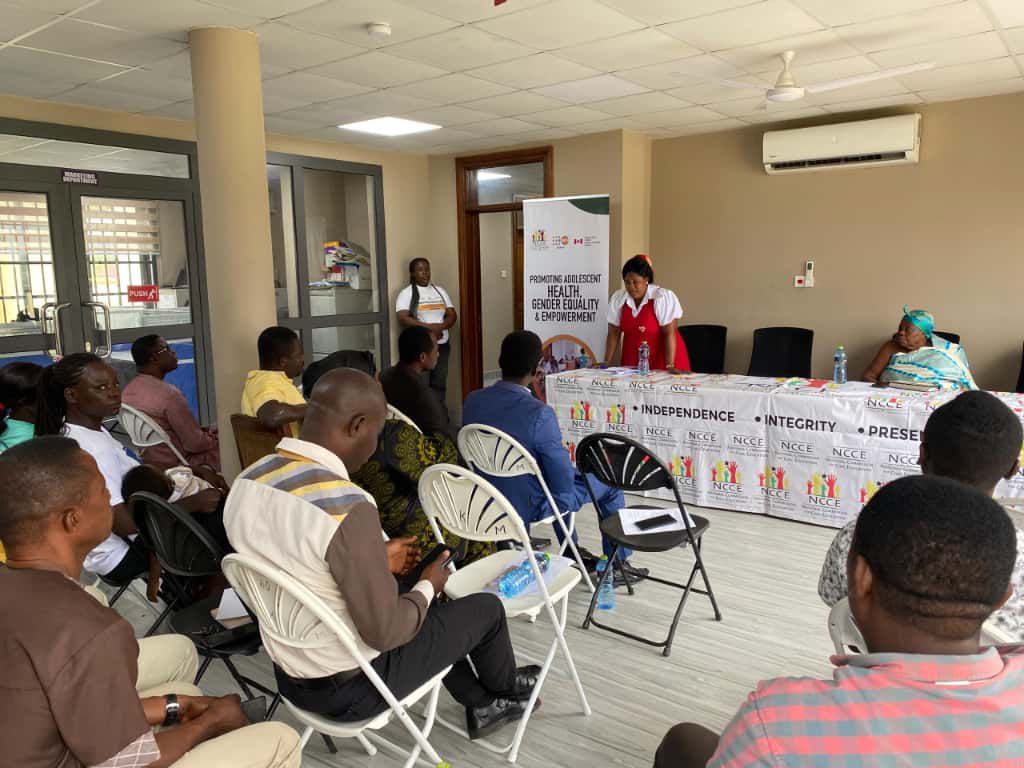
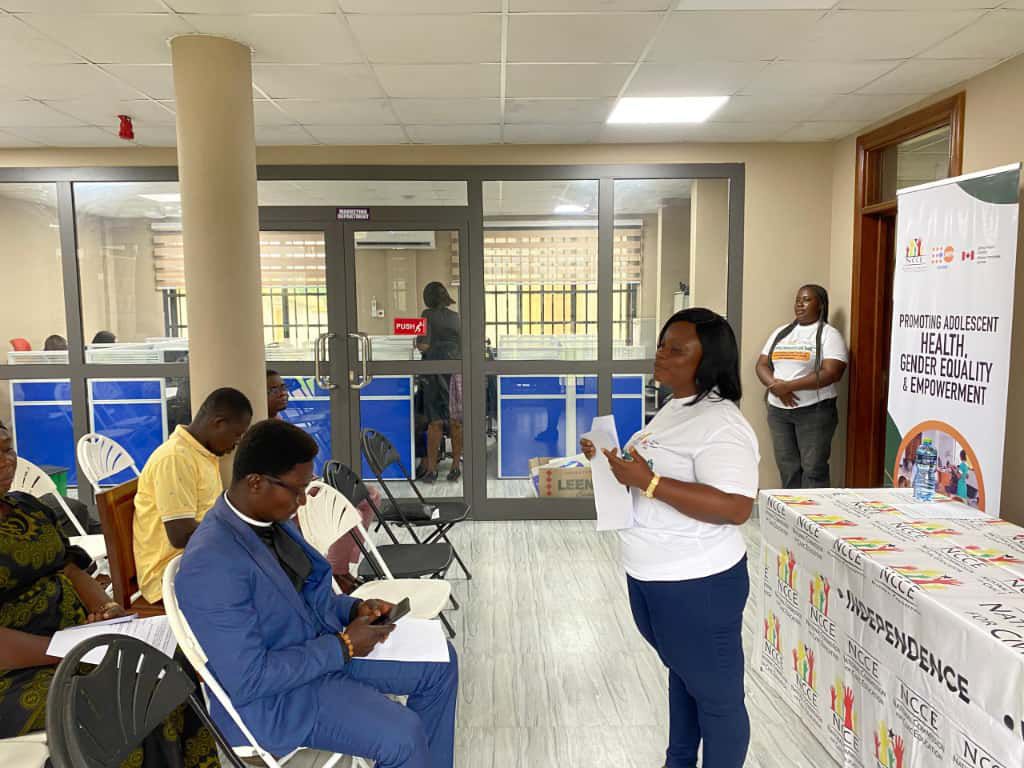
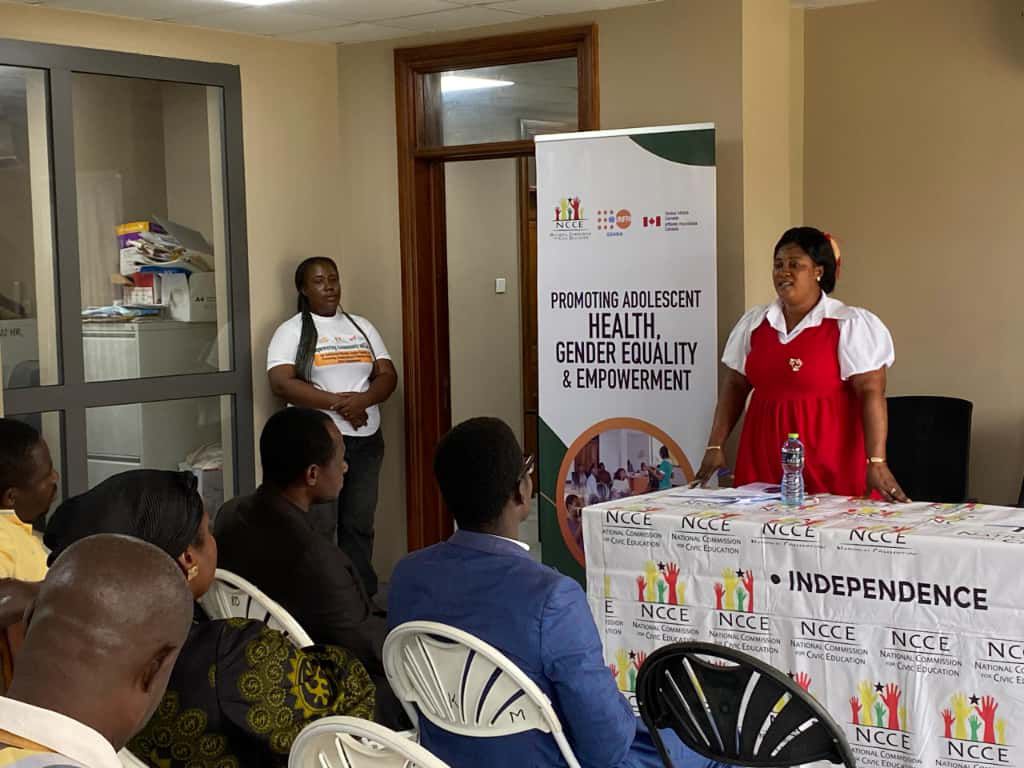
_
Follow us on our social media pages for more stories and posts from the NCCE.
https://www.instagram.com/nccegh/
https://www.facebook.com/nccegh/




Leave a comment